Every few months, a Congressional committee brings the leaders of the social media giants to Washington, D.C. hearing rooms to batter them over the damage their sites inflict on young people. Elsewhere in the nation’s capital, the United States Supreme Court is hearing several cases on control over Internet content.
Legislators in Albany propose new laws to rein in access to these sites, while major journalists including the Wall Street Journal run a series of articles looking inside Facebook, revealing that the company knows how destructive their content can be to adolescents.
Now, a new combatant is taking up the fight against Facebook, TikTok and Snapchat – the Peekskill City School District.
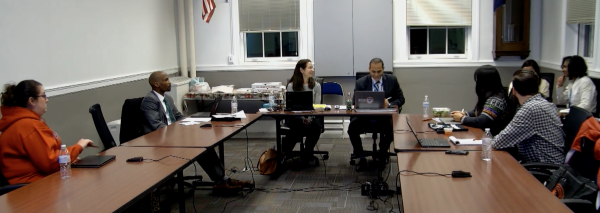
At its Jan. 9 meeting, the school district’s Board of Education voted to authorize “.. the law firms of Frantz Law Group, APLC and Ingerman Smith, LLP to commence legal action against the parties identified on Confidential Schedule “A”…” as part of its consent agenda, without reading the details of the motion.
However, in a copy of the proposed contract with Frantz, the scope of the lawsuit is spelled out in the minutes of the board’s Jan. 9 meeting.
“Client hires Attorneys to provide legal services in connection with pursuing claims for damages arising from District’s students’ use of social media. The litigation will involve, among other steps, the preparation and filing of the District’s action, i.e., the lawsuit (“Action”),” the contract states.
The attorney fees spelled out in the contract are on a contingency basis, meaning the district won’t owe the law firm any money unless the case successfully wins damages from Facebook, TikTok, Instagram and other social media titans.
The two law firms are soliciting school districts to file more cases and would split the fees of any money recovered.
“Ingerman Smith’s share of the net attorney’s fees will increase based on a sliding scale based on the number of clients for which Ingerman Smith serves as co-counsel: 30 percent – at least 25 clients, 35 percent – at least 45 clients,” the contract states.
Emails sent to District Superintendent Dr. David Mauricio, District Communications Director Laura Belfiore and School Board President Branwen MacDonald asking for comment were not returned.
Seeking damages in court a nationwide pursuit
Concerns over bullying on social media became an issue last year surrounding the death of a Peekskill district student. Other students and parents spoke of incidents of bullying over the Internet and apps during Board of Education meetings.
New York City has already filed a court action similar to Peekskill’s in the state of California, naming Meta (Facebook), Snapchat, TikTok and YouTube as defendants.
In their case, lawyers for New York City allege that the defendants ” … have targeted school-age children and that they are uniquely susceptible to harm.” They charge ” … the websites have designed, developed, produced, opened, promoted, distributed and marketed their platforms to attract, capture and addict youth with minimal parental oversight.”
According to the court papers, “Millions of kids use Defendants’ platforms compulsively, including during the school day” and that “Defendants platforms have created a youth mental health crisis and could have avoided harming NYC plaintiffs.”
At the end of its 311-page complaint the attorneys for New York City demand a jury trial and equitable relief to fund prevention education and mental health treatment; actual and compensatory damages; punitive damages and reasonable attorneys’ fees and costs of suit.
In Albany, legislators are debating two bills. The Stop Addictive Feeds Exploitation (SAFE) for Kids Act would target social media algorithms, prohibiting addictive feeds for kids under 18 without parental consent. It would also prohibit social media apps from sending notifications to kids’ phones between 12 a.m. and 6 a.m. without parental consent. The SAFE for Kids Act would give the attorney general the power to seek $5,000 in damages from the companies for each violation.
The Child Data Protection Act would prohibit companies from collecting personal data of kids under 12 without parental consent and that of kids under 18 without informed consent. Social media companies would have to apply privacy protections when they know that a user is a child, and they would be prohibited from making their services undesirable or unusable to people who don’t consent to the harvesting of their private information.
Policing local schools from social website dangers
School districts do have control over what happens during the school day. In a Connecticut district, students must store their phones in Yondr pouches they carry with them that keep their phones locked all day.
“If you were to walk around the building, you would not see a phone in this place — not in the classrooms, not in the cafeteria, not in the hallways,” Matthew Geary, the Manchester schools superintendent, told the Hartford Courant. “Probably more than in any other space you walk to, the kids’ heads are up as they are walking by.”
In the Hendrick Hudson School District there is no district-wide cell phone policy in place. However, according to a spokesperson, the Board of Education has reviewed various potential policy changes and a district-wide cell phone policy has been part of that discussion.
Peekskill School District policy does not prohibit phones, and access to social media sites, during the school day. Phones are allowed in the high school cafeteria at lunch and some students use them during class time. Administrators discourage their use and some teachers remove them, according to one current student in the district.
In a bit of unintended irony, for anyone who wants to watch Peekskill’s school board meetings live, the administration no longer broadcasts them on the district’s own channel that goes into everyone’s homes.
Instead, there’s only one place to watch the board meetings live – the District’s Facebook page.






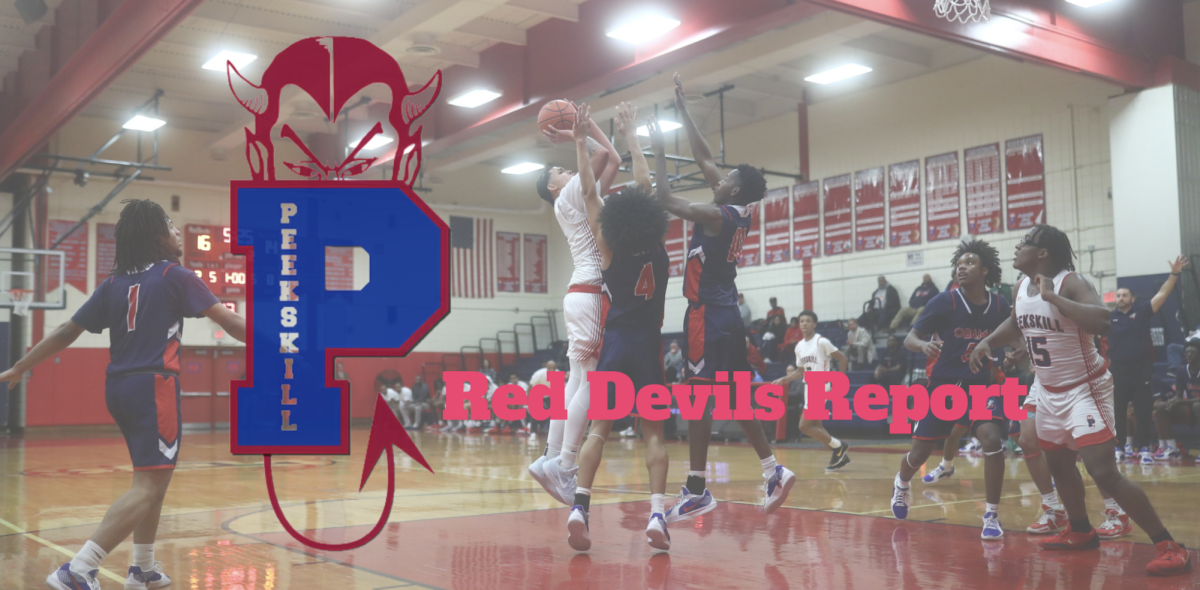



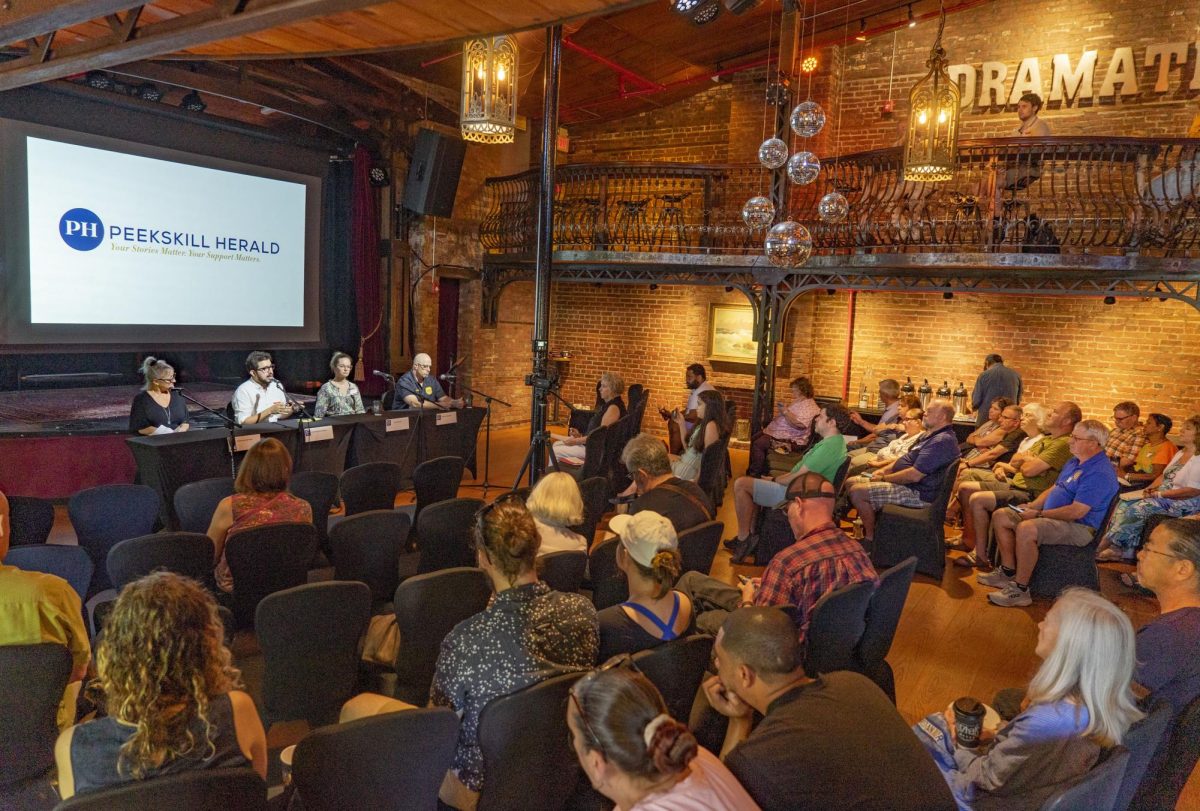
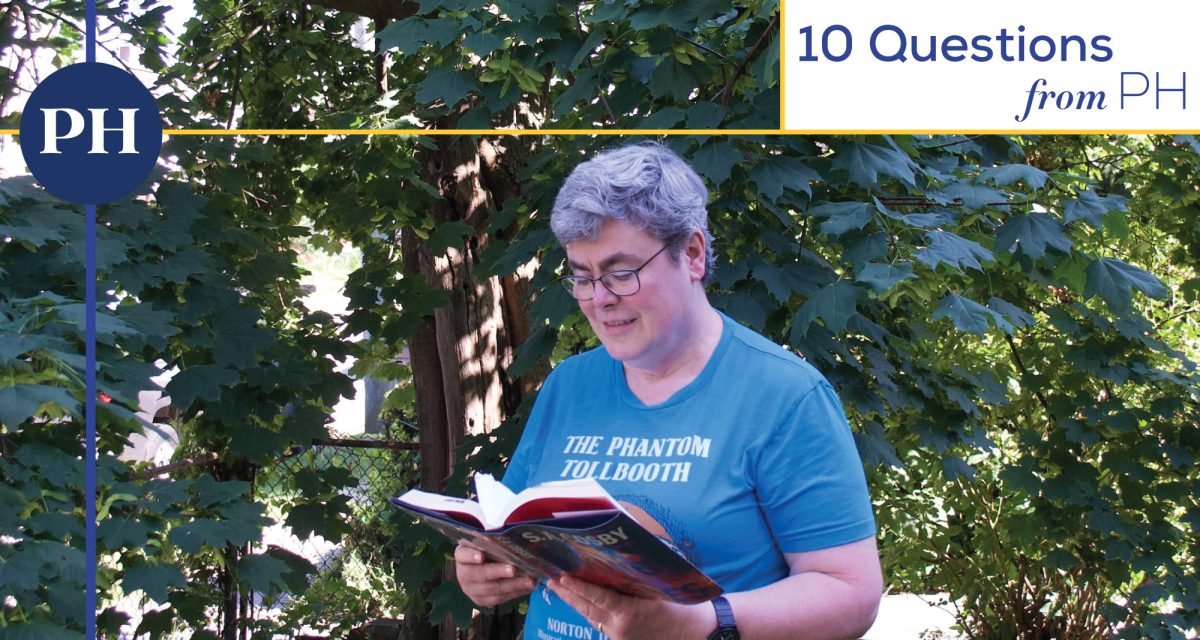



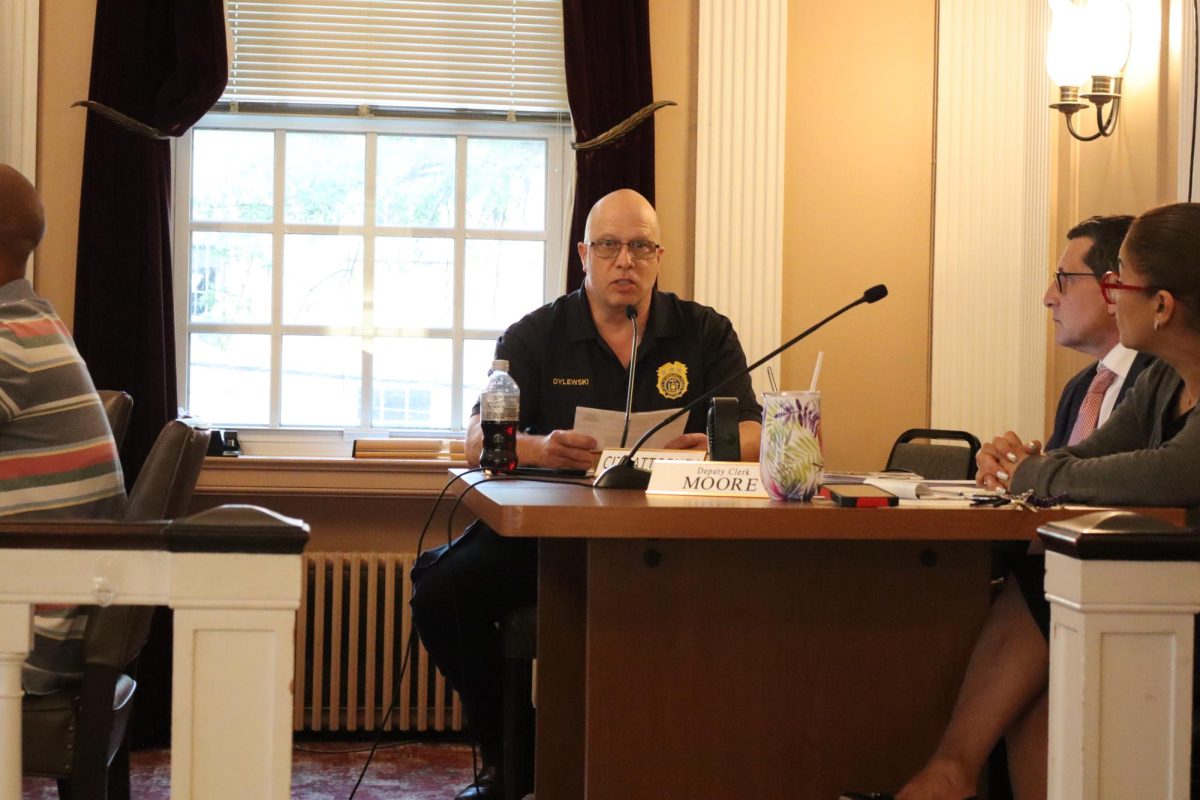
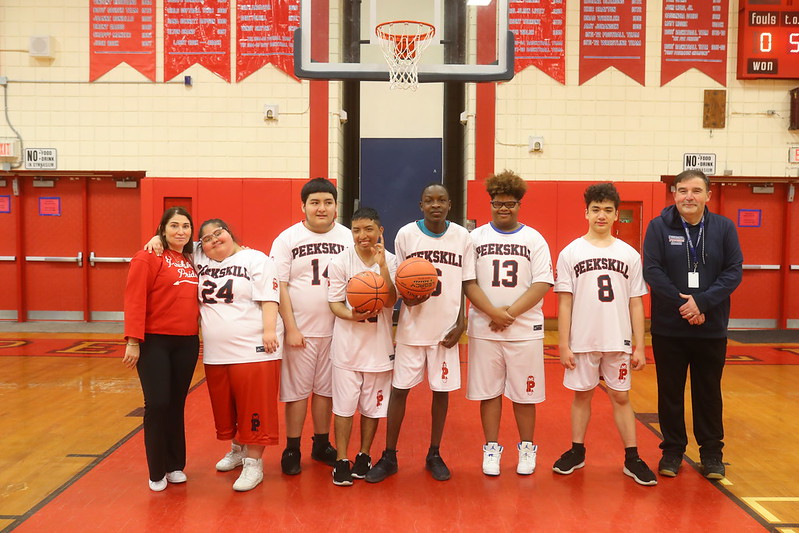
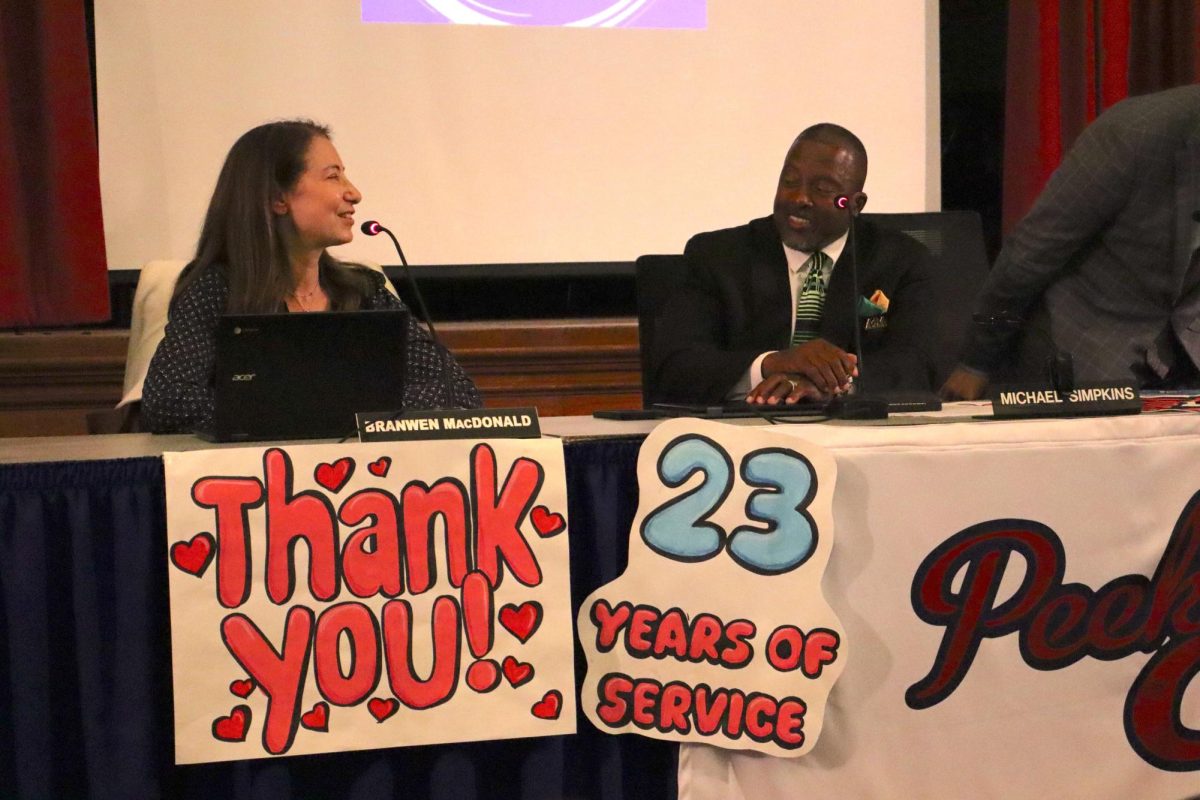

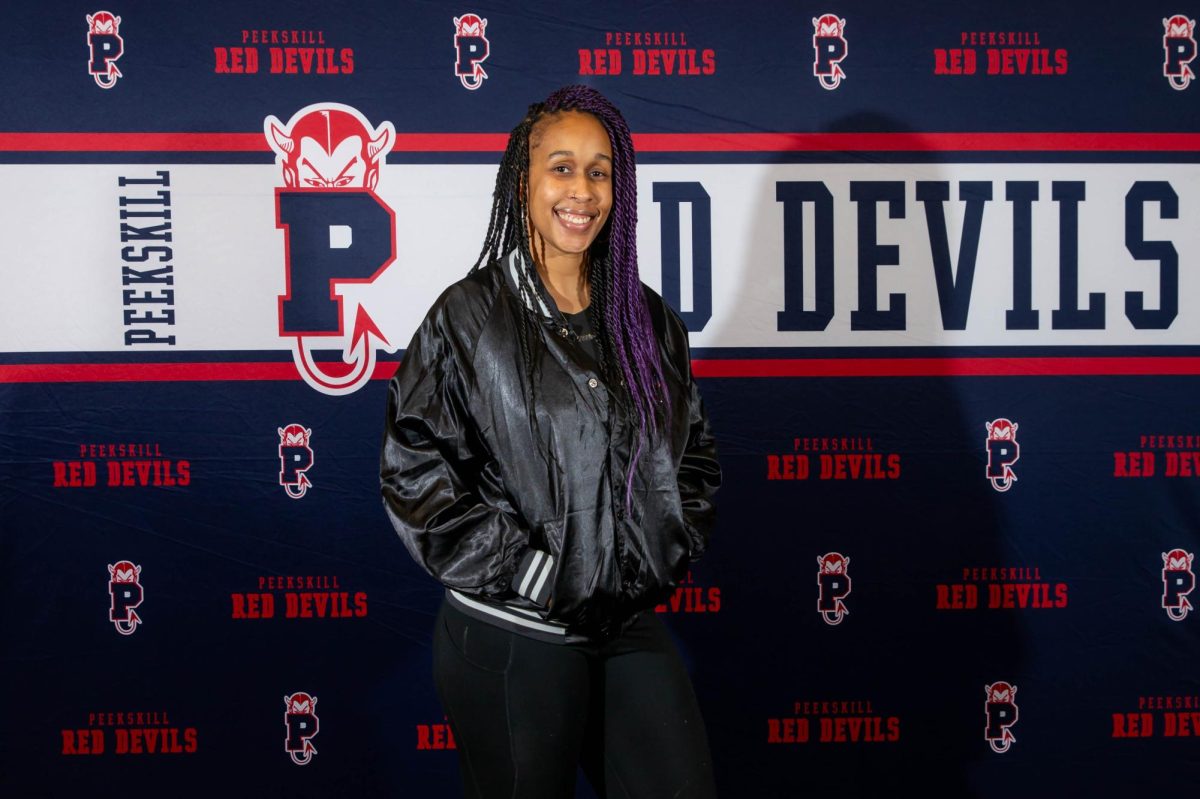
![Peekskill’s Umaru Conteh. (Peekskill City School District]](https://peekskillherald.com/wp-content/uploads/2025/06/Lead-photo-7-1200x640.jpg)

